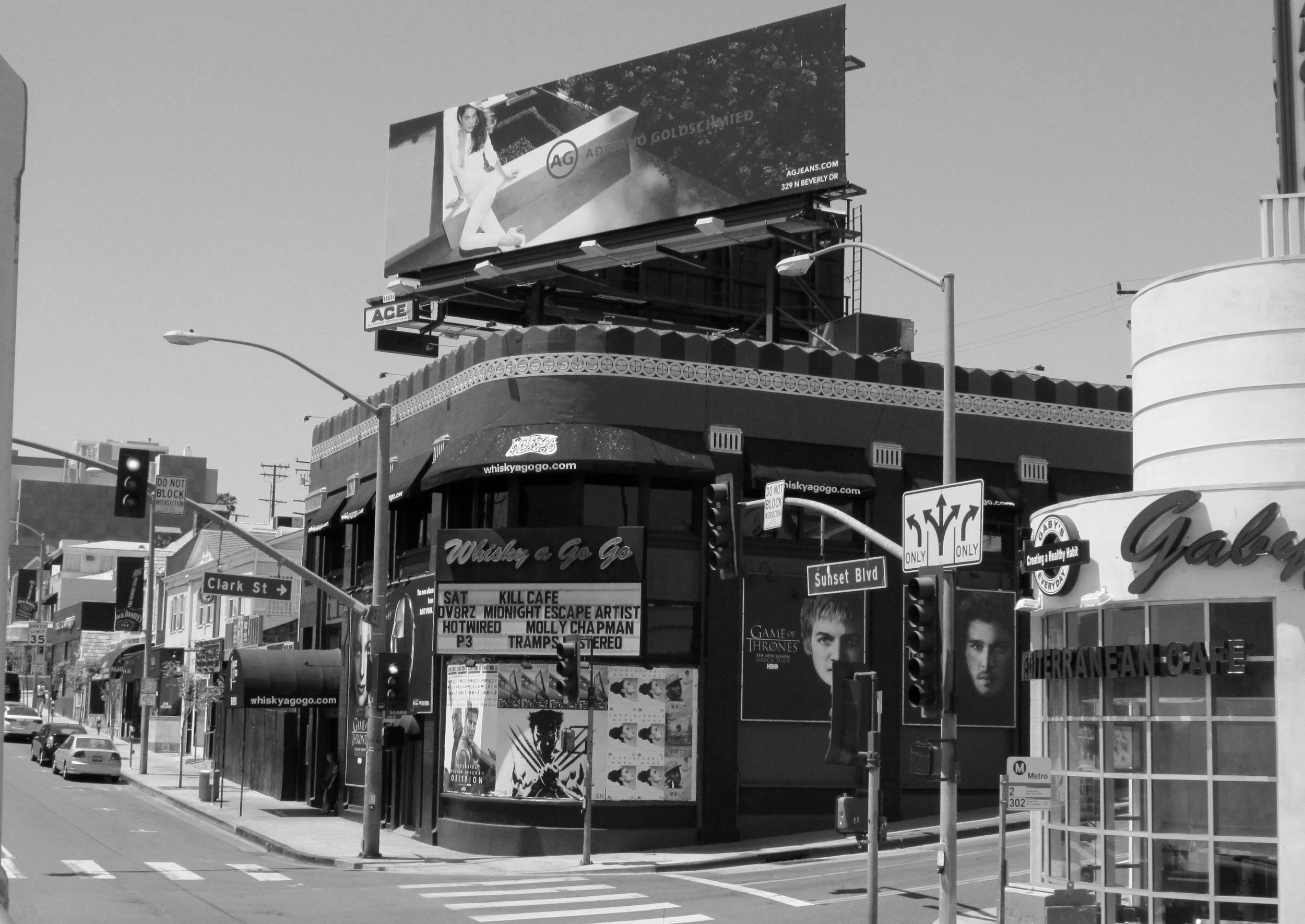South Africa’s Desert Rock Dynasty (Kuduchild & Red Huxley)
/Date of event: 22 August 2013
In the early 1990’s, the dry heat of Palm Desert in California gave birth to a sprawling music scene that imbibed the heavy legacy of Black Sabbath, Led Zeppelin and other monolithic proto-metal bands, and spat out scorching psychedelic hard rock jams that collectively became known as ‘desert rock’ (or ‘stoner rock’).
Across oceans and desert plains, two up-and-coming South African bands are subsequently drinking from a well that that scene helped build, and are now spawning their own dynasty of desert rock.
The Palm Desert Scene evolved from a small group of interrelated bands that emphasised collaboration, jamming, and extended use of psychedelic substances, which fortified a unique sludgy synthesis of blues, metal, and hardcore punk.
Whilst some of these groups have achieved a modicum of success outside of California, none match the combined influence and prominence of the Homme trinity: Kyuss, Queens Of The Stone Age, and Eagles Of Death Metal. Unsurprisingly, all three of these bands have involved the desert rock deity Josh Homme (the ‘Ginger Elvis’), whose towering physical and musical presence has helped this potent brand of rock achieve worldwide acclaim.
Kuduchild
Self-described ‘Karoo rock’ quintet Kuduchild seem to have channelled more of Homme’s first band Kyuss, with lumbering drums, chugging rhythms, raspy vocals and a strong metal influence on their twin-guitar setup.
The band, which formed in 2011, is on the cusp of releasing their debut EP with new bassist Louis Neilson, having recently recorded it with Alan Simmonds (part-owner of Ragazzi Bar and the Woodstock-based Sound Surgeon Studios).
On Thursday 22nd August 2013, Simmonds’ live music venue in Cape Town played host to this galloping gang of musical mammals, beginning with the ominous thundering hooves of Kuduchild’s drummer Aidan Billing (affectionately known as ‘Blood Arms’) on ‘Down She Goes’.
Aidan Billing of Kuduchild - Live at Ragazzi Bar (22 August 2013)
Photo credit: Francois De Villiers
Stretching their limbs, the band found their feet with the bluesy ‘Milk Teeth’, as each instrument joined in one-by-one, and singer Matthew Kennedy asserted himself with a resolute, likeable stage presence. But the badass ‘Kill It Hard’ was where they upped the ante, playing with the nagging urgency of a punk rock band.
From then onwards, the Kudu’s roamed between chunky doom-laden Black Sabbath riffs (‘Klank Klank’), vigorous heavy metal (‘No Bones’), and mellow mid-tempo rock (‘Hey There Mama’). Kennedy indicated that the latter is a long-time live favourite (“Those who’ve seen us a few times might recognise this”), and showcases the band at its best, with a dramatic shift in intensity as the bridge gallantly strides into a Rage Against The Machine-esque stomper.
Matthew Kennedy of Kuduchild - Live at Ragazzi Bar (22 August 2013)
Photo credit: Francois De Villiers
A notable element in Kuduchild’s setup is the improvised, free flowing relationship between their guitarists Etienne Buys and Nick L'Ange. From song to song, and even within a song, the pair alternate roles, blurring the line between lead and rhythm as they each fire off searing guitar solos at will.
This enterprising dynamic came in handy midway through a gritty cover of Unida’s ‘Black Woman’. After a blisteringly fast guitar duel, Buys’ amp malfunctioned, leaving L’Ange to pick up the slack with aplomb.
The one-two stadium-sized punch of ‘Black Beast’ and ‘Hit The Brakes' closed their set with decisive, stabbing hooks and meaty, militaristic drum parts by Billing, particularly on the former track.
Kuduchild - Live at Ragazzi Bar (22 August 2013)
Photo credit: Francois De Villiers
Red Huxley
The links that plucky Cape Town-based trio Red Huxley have to the Palm Desert Scene recently became more tangible in what is a rock ‘n roll fairy-tale come true.
After seizing the attention of Eagles Of Death Metal guitarist Dave Catching backstage when the band toured South Africa in August 2012, an offer was extended to them by the legendary desert rocker to produce their debut album. Additionally, he invited them to his studio in Joshua Tree, California, which is known as the centre of the Palm Desert universe: Rancho De La Luna.
A highly successful and ground-breaking crowdfunding campaign via the website Kickstarter in March 2013 ensured that their dream (titled ‘Road To Rancho’) came to fruition this past July. Fortunately, their exploits in the desert were captured on film by Motion City Studios, and the series of videos provide an absorbing, fly-on-the-wall look at the making of the album.
Despite professing similar influences to Kuduchild, Red Huxley’s approach is rooted in Homme’s later, more well-renowned work in Queens Of The Stone Age, as well as drawing on an eclectic mix of artists outside of the PDS that include Foo Fighters, The Black Keys, and Them Crooked Vultures (Homme’s side project with Dave Grohl and John Paul Jones, of Led Zeppelin fame). Thus they exhibit a more dirty, garage blues-based sound that skillfully veers into heavier territory.
Red Huxley’s time with Catching in California has definitely paid off, as they revealed a devastatingly taut set the following night on the same Ragazzi stage. The gig was their first one back in Cape Town since their trip, and the eager crowd were treated to a few new songs and some invigorating takes on their previous material.
As expected, hits such as the toe-tapping ‘It’s Too Late’ and ‘My Own Way’ (with its infectious guitar line) were definite crowd-pleasers. Although all three gents should be equally praised for concocting the chemistry between them, the charisma of lead singer and guitarist Dylan Jones plays a big role in his success as frontman of the band, and it shone through whatever he chose to do on stage. Whether shooting off seismic salvos from his axe, engaging with the crowd through some laidback stage banter, or launching his lusty howl off into the night, the bearded Dave Grohl lookalike knows his way around a stage.
Dylan Jones of Red Huxley - Live at Ragazzi Bar (22 August 2013)
Photo credit: Pierre Rommelaere
One of the new tracks arrived with a backstory, as Jones recounted a request from Catching whilst they were recording their album to write a fresh track, so “we got our shit together and wrote something desert-y”. The result was a dark, sinister masterpiece, book-ended by a slow, menacing riff. The hefty rocker showcased Jones’ strong vocals that adapted to the gloomy mood, which was promptly switched to an upbeat, sunnier disposition on the following new song, incorporating vocal harmonies with bassist Matthew Pullen.
Despite baring what seemed to be their best, the band still kept some cards close to their chests for their final songs. Jones acknowledged the sing-along status of ‘Coming Home’, with its propulsive, primal drumming from Murray Stephenson, and teased the crowd with an extended outro to a new track that magically transitioned into the barroom bender that is ‘Love Drunk Dirty’.
The performance was unpredictable as it was thrilling: after an ecstatic guitar solo, the tempo was brought down to a simmer, as Jones quietly sang “Come on baby, you know we’ll both be screaming to the morning”, before being cranked up again only to meet a false ending. By that point, the crowd was mere putty in Red Huxley’s hands, and the band’s triumphant return to Cape Town was capped off with a monumental extended jam.
From California to the Karoo
It’s still amazing to consider that an important sub-genre of rock rose out of one small American city in the middle of an unforgiving desert, through days-long jam sessions on ranches doubled up as studios (collectively known as ‘Desert Sessions’) or ‘generator parties’ that powered the local fan base hungry for live music.
Although South Africa is a much smaller society, pioneering musical wellsprings are still few and far between, but they also have had a widespread impact on the local scene, such as Bellville’s predominately Afrikaans rock bands that fueled an early 2000’s renaissance of punk and alternative rock in the nation.
But whatever the connection or inspiration is - whether it’s found in a desolate expanse of dirt in California, through a kindred bond closer to home with the Karoo, or just through the passing of the torch from one musician to another – the allure of the desert does strange and wonderful things to musicians caught under its spell.





